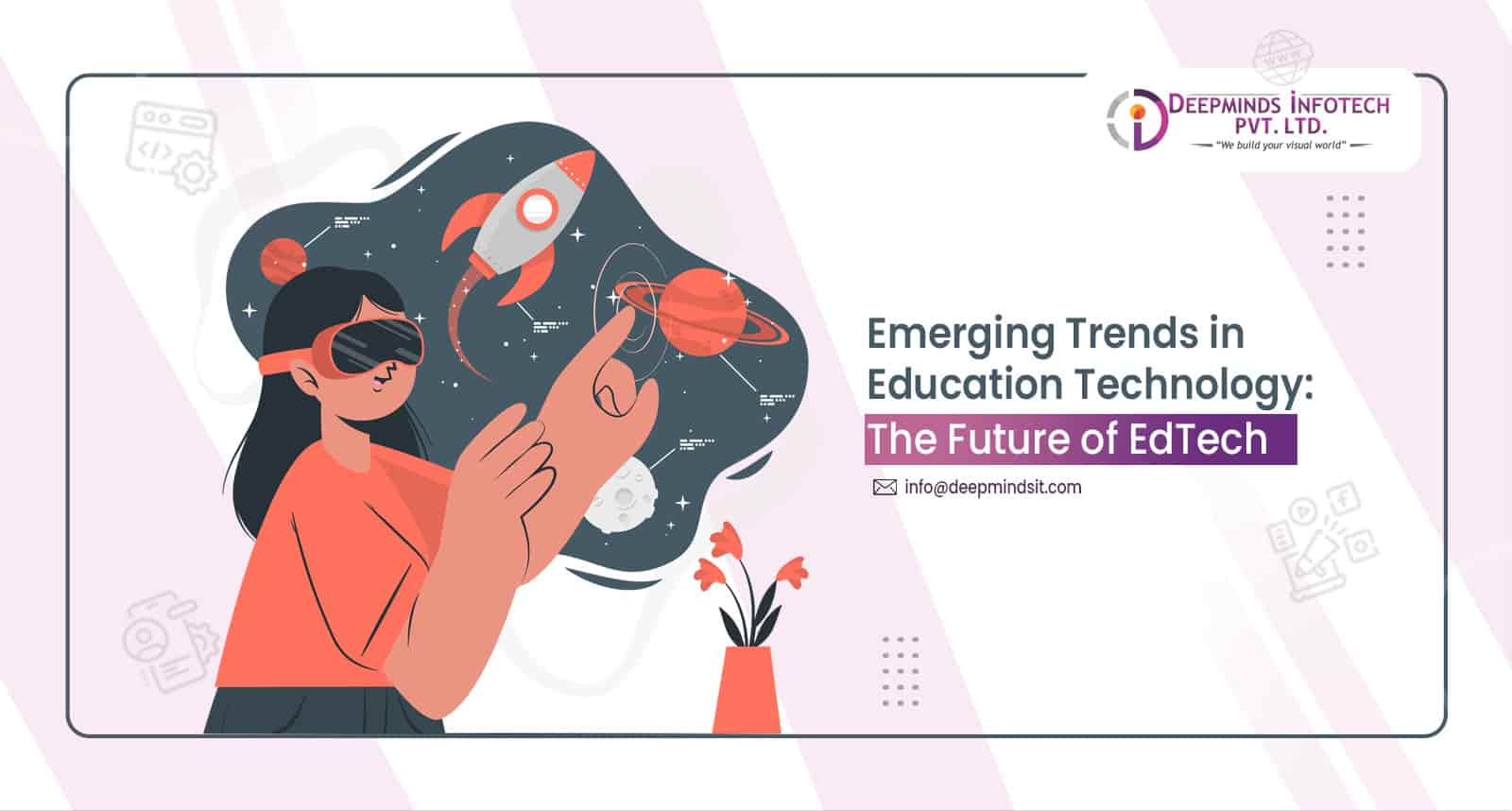Blog
Emerging Trends in Education Technology: The Future of EdTech
In our fast changing world, education technology (EdTech) is drastically changing how we learn and acquire knowledge

In our fast changing world, education technology (EdTech) is drastically changing how we learn and acquire knowledge

In our fast changing world, education technology (EdTech) is drastically changing how we learn and acquire knowledge, which is crucial. The conventional school environment is going through a change as a result of technological advancements in digital tools and platforms. EdTech is paving the path for a future with endless educational choices, from online courses to interactive learning apps. We shall examine why EdTech is viewed as the direction of education in this essay.
Advantages of EdTech
1. Improved Accessibility:
People from all walks of life can now access education, regardless of where they live or their socioeconomic status. Students can access instructional materials and courses at any time, from any location, with the aid of internet platforms. People can learn at their own speed and customize their educational journey to meet their needs thanks to this flexibility.
2. Personalized Learning:
Offering individualized learning experiences is one of the most important benefits of EdTech. Educational platforms can assess the strengths and weaknesses of specific pupils using adaptive learning algorithms and artificial intelligence. This analysis enables the development of individualized learning pathways that meet each student's particular needs, resulting in increased engagement and better results.
3.Interactive and Interesting Content:
EdTech technologies provide interactive and captivating content that grabs students' attention. These techniques make learning enjoyable and engaging, whether through gamification, simulations, or multimedia presentation. EdTech keeps students engaged and motivated in the learning process by adding interactive and gamification components.
4. Cooperation and communication:
Learning collaboration and communication are encouraged through EdTech platforms. Students can communicate with their peers and instructors through online discussion boards, virtual classrooms, and collaborative projects. This improves their social and communication abilities, preparing them for future professional settings where teamwork and collaboration are essential.
5. Constant Learning and Professional Growth:
Opportunities for lifetime learning and ongoing professional development are provided through EdTech. By taking online classes, participating in webinars, and using virtual reality.

The future of Education:
As we move forward, EdTech is expected to play an even more significance role in education. Here are some insights in the future of EdTech:
1. Educators Will Be Empowered by Artificial Intelligence (AI):
Artificial intelligence and machine learning technologies will continue to advance and reshape the world of education AI-Powered chatbots and virtual assistants will provide personalized support to students, answering their questions and offering guidance. ML algorithms will analyze massive amounts of data to identify learning patterns and predict student outcomes. With the use of sophisticated technologies to improve their teaching techniques, artificial intelligence is redefining the job of educators. AI-powered chatbots can offer pupils rapid assistance, while intelligent tutoring systems can provide individualized guidance. AI can also examine enormous volumes of data to find trends, empowering educators to make data-informed decisions for better educational outcomes.
2. Education that is accessible at any time and everywhere:
Utilizing mobile devices in education has grown in popularity as they have become more widely available. By removing the restrictions of traditional classroom settings, mobile learning enables students to access instructional content whenever and wherever they choose. Students are able to engage in interactive learning experiences outside of traditional classroom settings by using mobile apps, instructional resources, and collaborative platforms.
3. Personalized Education: Promoting Individual Development:
Personalized learning is gradually replacing the conventional, one-size-fits-all approach to education. The strengths, weaknesses, and learning preferences of each student are examined through adaptive learning platforms and clever algorithms using EdTech. This data-driven approach enables educators to develop personalized learning experiences, ensuring that every student has the support they require to thrive.
4. Immersive Experiences using Augmented and Virtual Reality:
Technologies such as augmented reality and virtual reality have the power to completely change the way we learn. Students' learning and engagement are increased by VR and AR's immersive experiences, which can take them to far-off places or imitate challenging situations. From virtual field trips to interactive simulations, these technologies add a new level to teaching.
Conclusion:
Education technology, or EdTech, has a bright future. A few of the new trends that are changing education include personalized learning, virtual reality, gamification, artificial intelligence, and mobile learning. In order to provide an inclusive, interesting, and productive learning environment for students of all backgrounds and abilities, educators and institutions must embrace these trends as technology develops.

Don't let your vision stay on paper. Connect with our expert consultants today to discuss your project requirements, validate your concept, and receive a detailed, non-binding quote. Let's start building the software that drives your business forward.
Projects Delivered
Worldwide Clients
Team Members
Years in Industry
Customer Retention
Customer Rating